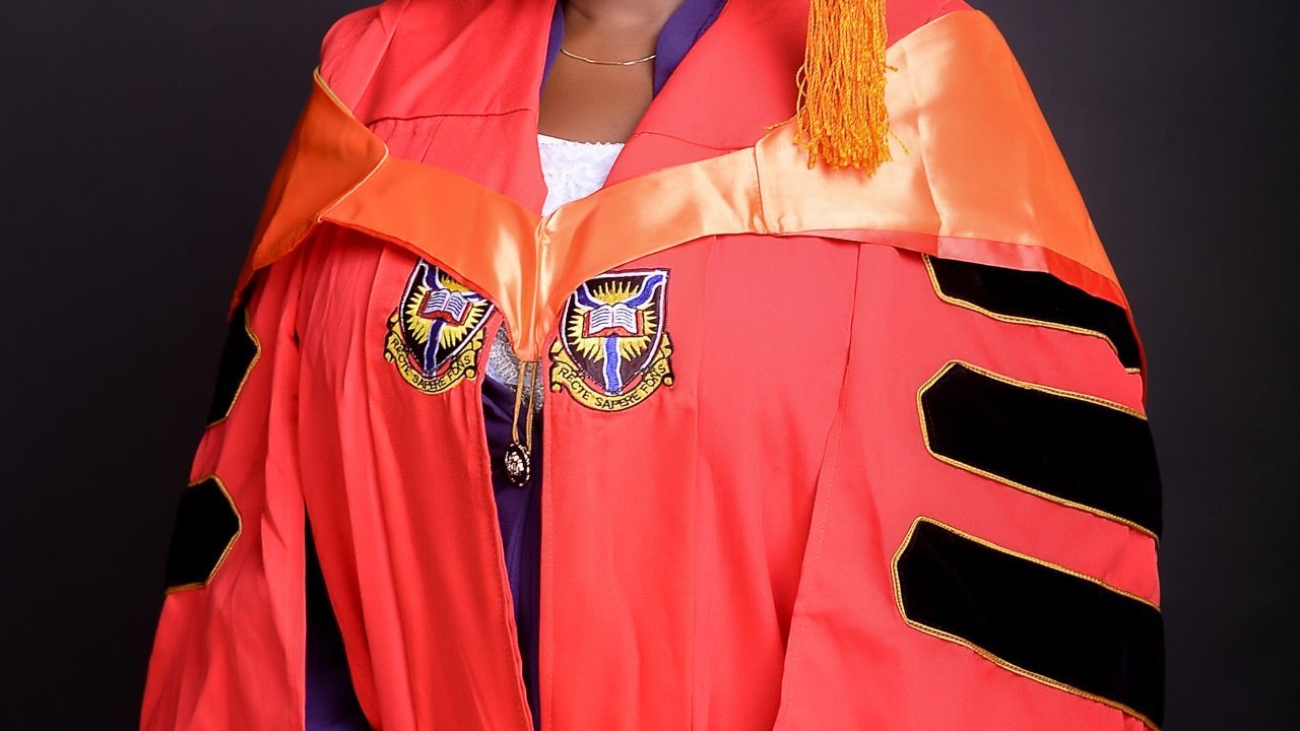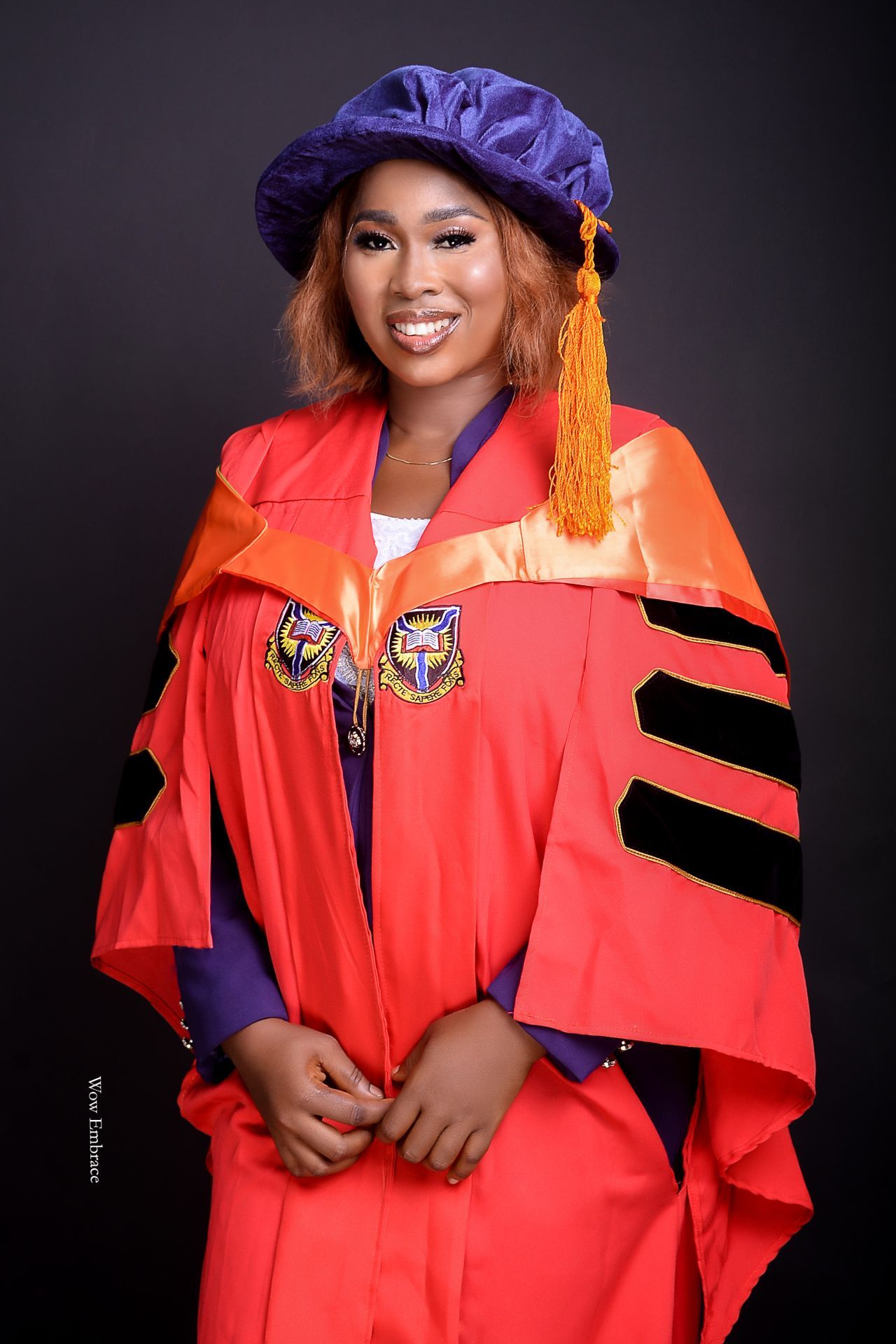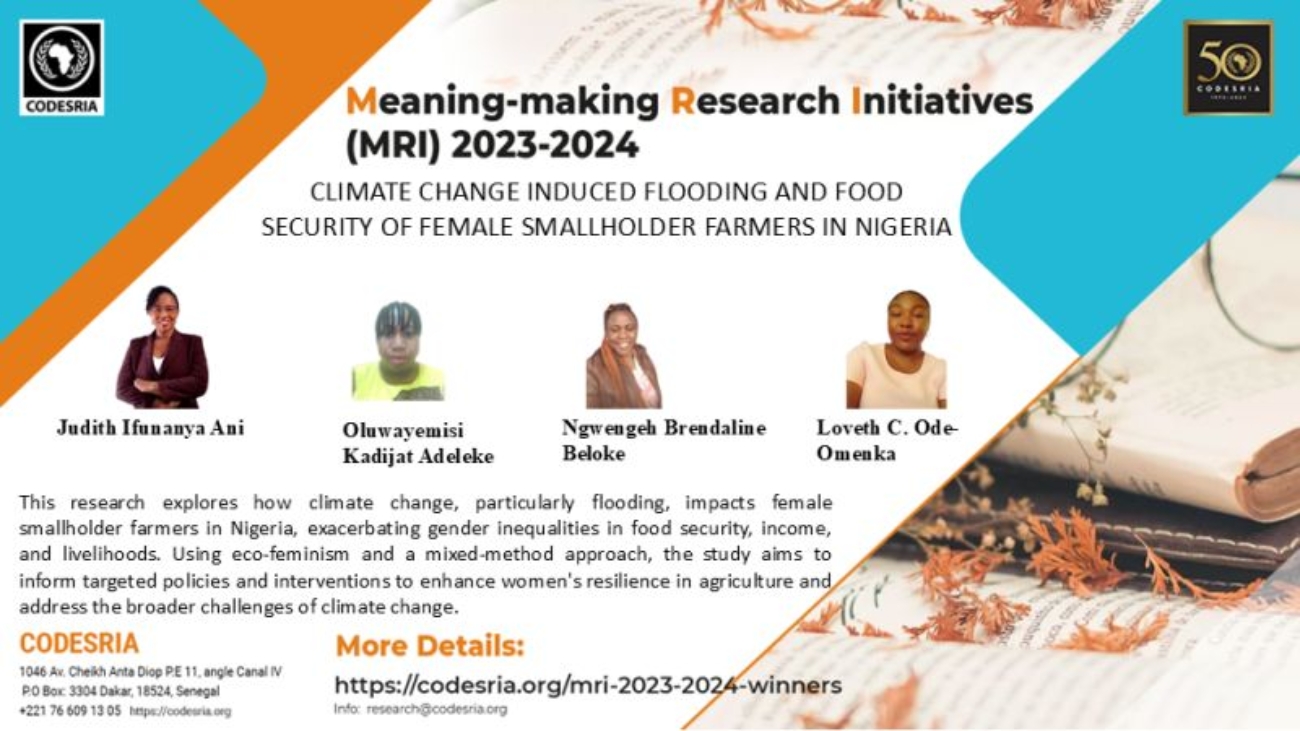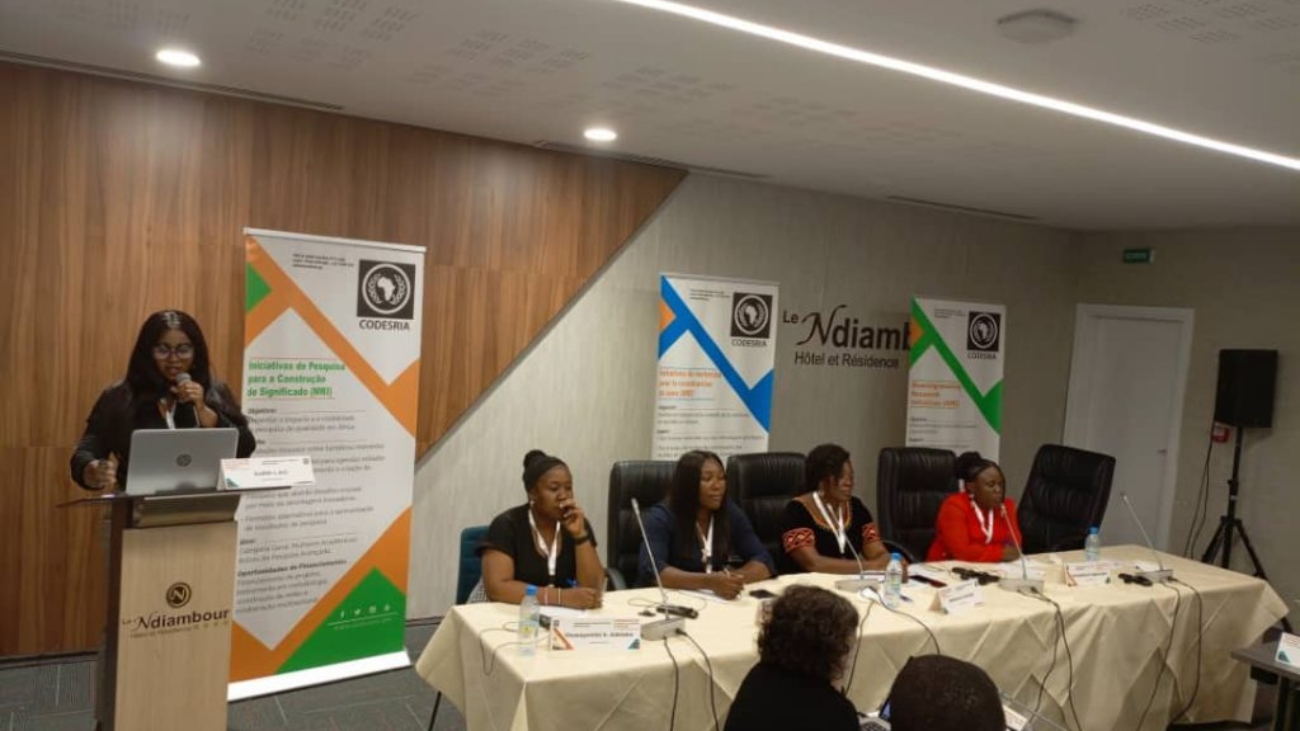Today, we at diaderc.centre are thrilled to spotlight a remarkable beacon of innovation and social impact in renewable energy research—Dr Judith Ifunanya Ani. She is an active DIaDeRC Team member serving as Programme and Partnership Lead.
Dr Judith holds a Doctorate from the University of Ibadan, Nigeria, and she is an embodiment of transformative change. Her expertise spans sociology, demography, and population studies, making her a disruptive thinker in our field. Her high energy and passion set her apart as a leader who believes in the power of knowledge and collaboration to drive sustainable development across Africa.
Judith’s innovative approaches to harnessing solutions exemplifies what it means to be a resourceful leader—training teams, engaging stakeholders, and building partnerships that create pathways for success. Her work is not just about research; it’s about empowering people, which typifies DIaDeRC’s Motto of ‘Honing Knowledge for Transforming Lives’
As a passionate advocate for social impact, she is relentless in her pursuit of knowledge and shares her insights to uplift others. We continually inspired by her ability to solve complex problems and her commitment to fostering sustainable practices.
We invite you to join us in celebrating Dr. Judith Ani’s contributions; with the recent ones including Serving As Facilitator for Epsiode 2 in ASMN 4.0 and leading DIaDeRC Quartet Team for CODESRIA’s MRI (Meaning-making Research Initiative).
How do you see research impacting communities and societies?
Your thoughts are invaluable to us!
Let’s engage with Dr Ani’s vision and work together towards a brighter, more sustainable future.
DIaDeRC Quartet Emerge MRI 2023/2024 Winners
A team of researchers led by the Lead, Programmes and Partnership of DIaDeRC, Dr Judith I. Ani, got global recognition and was adjudged one of the winners of the 2023/2024 CODESRIA’s Meaning-making Research Initiatives (MRI) competition. The team which comprised of Mrs Loveth C. Ode-Omenka, Dr. Oluwayemisi K. Adeleke and DIaDeRC’s Coordinator, Central Africa, Dr Ngwengeh B. Beloke, all worked on a research proposal with the focus on “Climate Change Induced Flooding and Food Security of Female Smallholder Farmers in Nigeria’.
The announcement was published on the website of the Council for the Development of Social Science Research in Africa (CODESRIA), an independent pan-African research organization primarily focusing on social sciences research in the continent.
The research work offered critical insights into the intersection of gender, climate change, and agriculture. In economically disadvantaged regions like Nigeria, climate change intensifies challenges for women, particularly female smallholder farmers who are vital to the country’s food production yet often overlooked in policy discussions.
By exploring the impacts of flooding on their food security, income, and livelihoods through an eco-feminist lens, their research endeavour provides actionable insights to guide policy-making and interventions. The goal is to enhance the resilience of women in agriculture and develop adaptive measures that benefit both the environment and socio-economic stability. Let’s discover how this work can influence future strategies for a more inclusive and sustainable approach to climate change and agriculture.
The entire leadership of DePECOS Institutions and Development Research Centre (DIaDeRC) congratulates and celebrates this outstanding quartet for the feat.
DIaDeRC’s CODESRIA-MRI Award Winning Quartet Participate in Execution Workshop at Senegal
Consequent to the announcement published on the website of the Council for the Development of Social Science Research in Africa (CODESRIA) of winners of the 2023/2024 CODESRIA’s Meaning-making Research Initiatives (MRI) competition, the quartet of DIaDeRC team members, led by the Programmes and Partnership Lead, Dr. Judith I. Ani, participated in the prestigious CODESRIA Meaning-making Research Initiatives (MRI) Methodology and Scholarly Writing Workshop held at Dakar, Senegal, from 16-20 September 2024.
The quartet-winning proposal, “Climate Change-Induced Flooding: Implications for Income and Food Security among Female Smallholder Farmers in Nigeria”, was one of 14 proposals selected from numerous submissions. This significant achievement reflects the team’s dedication to addressing the intersection of gender and climate change, with a specific focus on how climate-induced flooding disproportionately affects the livelihoods of female smallholder farmers. The research aims to provide practical, policy-relevant recommendations to enhance climate resilience among these vulnerable groups.


The Methodology and Scholarly Writing Workshop provided valuable opportunities to enhance MRI winners on expected research methodologies, writing skills, and project design, with a view to ensuring the robustness of proposals and alignment with CODESRIA’s thematic priorities.
During the workshop, scholars were introduced to the resource persons who will guide their projects through completion. Participants also gained insights into African epistemologies, expanded their research knowledge, and built connections with fellow scholars.
In addition, team members from DIaDeRC were actively involved and participated in group and team activities throughout the workshop, where they contributed in various roles and capacities. For instance, Dr. Oluwayemisi K. Adeleke served as a Rapporteur during a group presentation, while Dr. Judith I. Ani took on the role of Rapporteur during a resource-person presentation. Furthermore, Dr. Ani was part of a roundtable discussion with laureates on the theme “Rethinking African Scholarship in Complex Times: Possibilities and Challenges.” Their involvement showcased their commitment and added significant value to the workshop.


Beyond the in-class activities, members had the pleasure of exploring the beautiful city of Dakar, which is renowned for its tourist attractions. In other words, the workshop was not just an academic pursuit; it also offered a chance to explore Dakar’s rich culture. The DIaDeRC team visited the Museum of Black Civilisations (Musée des civilisations noires), recognized by Time magazine as one of the “World’s 100 Greatest Places of 2019.” This museum beautifully encapsulates Africa’s rich history, science, antiquities and heritage, and its exhibits connect the past and present of Black people across the globe.
A visit to the iconic African Renaissance Monument (Monument de la Renaissance Africaine), further underscored the resilience and strength of African people. The 52-meter (171 ft)-tall bronze statue, located on top of one of the twin hills known as Collines des Mamelle, overlooking the Atlantic Ocean, serves as a symbol of hope and a reminder of the sacrifices made by African heroes. An inscription at the foot of the statue enjoins tourists to think about the resilience of the people whose sacrifice brought about the African Renaissance. As the team climbed the 180 stairs to the monument, they reflected on the importance of resilience—a value that aligns with their research efforts aimed at contributing to Africa’s development.
The Methodology and Scholarly Writing Workshop in Dakar, Senegal, was part of the execution phase of the grants won by scholars on the platform of CODESRIA.



